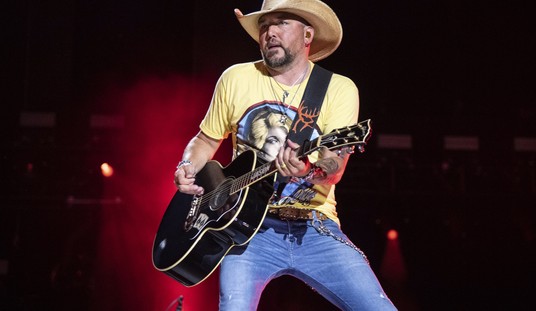Just what exactly do progressives — especially those with antipathy to law enforcement — get from a Joe Biden/Kamala Harris ticket? The media has spent much of the past thirty hours celebrating this union rather than analyzing it, but not everyone’s tossing confetti. Karen included the reaction from former Bernie Sanders press secretary Briahna Joy Gray in her earlier post, but it’s worth pulling out and reviewing more closely:
We are in the midst of the largest protest movement in American history, the subject of which is excessive policing, and the Democratic Party chose a “top cop” and the author of the Joe Biden crime bill to save us from Trump.
The contempt for the base is, wow.
— Briahna Joy Gray (@briebriejoy) August 11, 2020
Not just any “top cop” either, but one with a problematic track record on prosecutions for progressives, especially these days. In an era where progressives want much more aggressive prosecutions for police officers who abuse their authority, Harris’ record comes up considerably short on that issue. Forbes notes that two progressive groups sounded less than thrilled with the pick as well:
A joint statement from the Progressive Democrats of America and RootsAction said Harris “failed for years to hold police accountable for gross misconduct in California,” with the groups adding, “We will fight every day to hold Vice President Harris to the higher ideals she often espouses.”
These are not new concerns; last year, back when the New York Times felt more comfortable in drilling into Harris’ record, it laid out the issues in more detail. Harris defended California’s death penalty in court as the state’s AG despite declaring her opposition to it:
Ms. Harris, the first person of color elected as this city’s district attorney, declared her decision a matter of principle: The death penalty, she believed, discriminated against poor and black people and would not deter more killing.
But death penalty opponents wondered a decade later where that principle had gone when as California’s attorney general Ms. Harris appealed a judge’s decision declaring the state’s death penalty law unconstitutional. She said it was a matter of upholding the law; her critics asked whether she would have similarly defended segregation and statutes against interracial marriage.
Despite her pose as a progressive activist during the campaign, the NYT uncovered what looked like hypocrisies in her actual record as the state’s “top cop”:
Years before ending mass incarceration became a bipartisan cause, she started programs to steer low-level drug offenders away from prison and into school and jobs. At the same time, she touted her success in increasing conviction rates, and as attorney general remained largely on the sidelines as California scrambled to meet a federal court order to reduce its swollen prison populations. She also repeatedly sided with prosecutors accused of misconduct, challenging judges who ruled against them.
And while she summoned righteous anger toward the bank fraud that helped set off the Great Recession, holding out for more money for California homeowners in the National Mortgage Settlement, she said little when the governor diverted some of it to fill holes in his budget.
When it came time to run for AG, Harris did so on the basis of increasing convictions in San Francisco — which critics then and now say was pandering to less-progressive voters:
But it was Ms. Harris’s success in increasing conviction rates that became a central boast of her campaign for attorney general in 2010.
An article in San Francisco Weekly that year challenged the numbers, noting that most of the convictions had come from plea deals, and that the conviction rate for cases that went to trial was lower than Mr. Hallinan’s, and had dropped over the previous two years. Assistant prosecutors were quoted saying that Ms. Harris had pressured them to take weak cases to trial in an attempt to look tough on crime as she prepared to run beyond the liberal city.
Her office defended her by noting that she had won stiffer sentences than her predecessors, by demanding prison time instead of probation for crimes including robbery and home burglary.
It’s fair, at least, to call this a complex record. Some of what seems off-putting to progressives might be explainable, and might even seem encouraging to conservatives. However, it is very revealing that the media suddenly seems uninterested in that complex record and its impact on voting constituencies — at all. Rather than follow up their previous reporting in the context of Harris’ nomination, today’s NYT article on her ascent never mentions any of those conflicts. It’s as if they have been magically wiped from existence.
That won’t be easy to sustain, however. Not everyone’s going to keep quiet about it:
Remember when @TulsiGabbard reminded Kamala Harris of her terrible record of locking up thousands of young minorities, of being an overzealous drug warrior and of her record as a harsh prosecutor?
I do. https://t.co/xhLfBqxGGs
— Senator Rand Paul (@RandPaul) August 11, 2020
In light of this, one has to wonder what exactly Harris buys Biden in this election. She didn’t excite black voters during the primary, and she has a record on law enforcement that cuts directly against progressives’ biggest passion at the moment — as does Biden. Perhaps when the media switches from cheerleading mode to actual reporting and analysis, we can get an answer to that. In the meantime, it’s tough to challenge what Gray said last night.








Join the conversation as a VIP Member